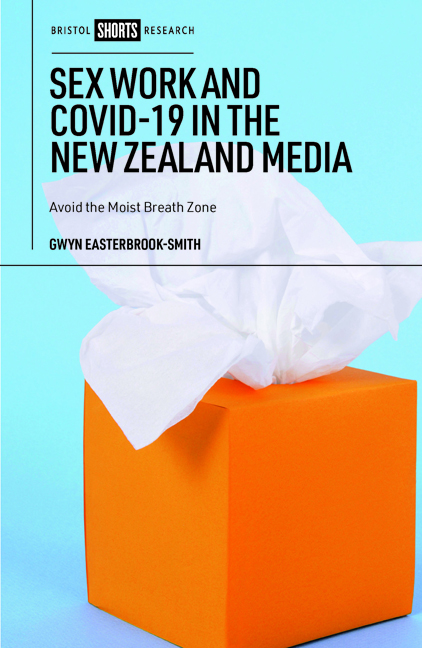Four - Implications and Developments
Published online by Cambridge University Press: 18 January 2024
Summary
Sex work and public health during a crisis
Media coverage around sex work in New Zealand during the initial two years of the COVID-19 pandemic cohered around a few key themes. Online work emerged as a focus during both years, but with a different inflection as time went on, discussed in terms of its exposure to banking discrimination, and the resultant economic precarity this contributed to. In both years, the way that COVID-19 restrictions might impact on what sex workers could do with their clients and how they would adapt were discussed, alongside reports of sex workers and clients sometimes breaching the restrictions. Access to financial support was also a topic that spanned both years, but discussions became more nuanced. In this chapter, I am interested in using media texts to consider how sex workers were made vulnerable, which groups of sex workers were most exposed to this vulnerability, and how they responded. In addition, I look at what strengths of decriminalisation are evident, and if and how the aims of the PRA were supported or affirmed by policy approaches during the pandemic.
Sex workers have previously been characterised in stigmatising ways as vectors of disease, and more than one of my friends observed that it was interesting to see how ‘civvies’ reacted when they were treated as potentially infectious and contagious, for a change. At a time when all face-to-face work carried with it the threat of infection, sex work was no longer uniquely risky or set apart from other kinds of work because of this. Sex work organisations and many workers were operating from the potentially advantageous position of already considering public health in regard to their work. Threaded through many of the discourses throughout 2020 and 2021 is the idea of sex work as work. This framing of the industry was apparent in many places – in how online work was discussed, in reporting of calls for certainty about returning to work from the sector, in acknowledgements that people broke lockdowns under economic duress – and I think this is worth noting. A shift towards seeing sex work as work, and not as a moral or criminal issue, changes the register in which it is discussed.
- Type
- Chapter
- Information
- Sex Work and COVID-19 in the New Zealand MediaAvoid the Moist Breath Zone, pp. 87 - 110Publisher: Bristol University PressPrint publication year: 2023



